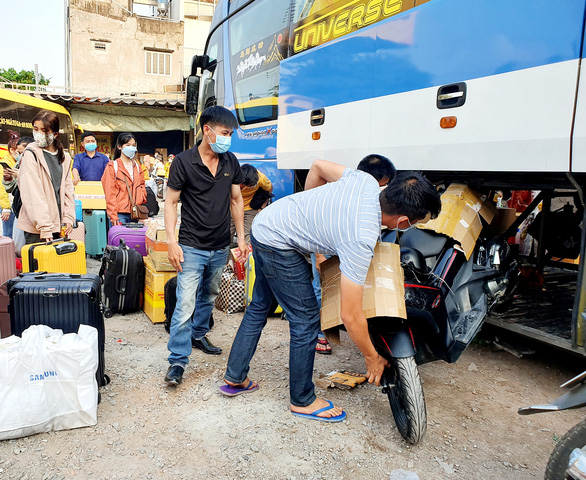Increased fuel prices are wreaking havoc across the transportation industry in Vietnam as costs of once wallet-friendly alternatives, such as e-bikes, ride-hailing services, and budget airlines all steadily rise as a result.
To combat the problem, the government is considering proposals to cut taxes on gasoline and oil, according to the National Assembly (NA).
Ripple effect
Nguyen Tri, sales manager for electric bike brand PG, explained that the increased price of e-bikes and e-scooters is due to the rising costs associated with transporting the bikes to sales outlets and distributors.
According to Tri, PG had resisted raising rates at the beginning of the year despite spare part shortages and rising transport costs, but once fuel in Vietnam surpassed VND30,000 (US$1.28) per liter and transport operators hiked fees by 10 percent in March, the firm was left with no choice.
“The increased prices of input materials, such as aluminum, steel, and electric wires have forced the prices of spare parts up by 10 to 20 percent,” Tri explained, adding that the hike in fuel prices has left an enormous impact on the firm’s post-pandemic recovery.
The freight industry has faced the same fate.
Nguyen Kim Thanh, director of Kim Phat Transportation Company in District 12, Ho Chi Minh City, said that record-high fuel costs are creating serious struggles for her firm as it attempts to renegotiate with customers.
The on-demand delivery sector is also confronting woes as a result of the rising cost of fuel, coupled with a decrease in demand, with Grab, GoJek, and Be drivers all struggling to earn a living.
Many are now considering looking for new jobs, including Nguyen Phuc Bao Chau, a student from Bach Viet College in Ho Chi Minh City, who is a part-time delivery worker.
“I am thinking about quitting my current job and seeking a new one because of soaring gasoline prices and sluggish demand,” Chau said.
More expensive fuel has also placed an undue burden on local airlines, including Vietnam Airlines, Vietjet Air, Bamboo Airways, and Vietravel Airlines.
A commercial deputy director of a local air carrier told Tuoi Tre (Youth) newspaper that airlines’ business operations remain slow although the aviation sector is showing positive signs of recovery.
Some nations are still limiting the number of air passengers aboard inbound flights, in some cases lowering flight capacities by up to 50 percent.
This, along with rising gas prices, is putting serious pressure on airlines.
If jet fuel continues being traded at $130 per barrel in 2022, the cost will add VND5.7 trillion ($245 million) over the course of the year, according to local airlines.
That number will jump to VND9.12 trillion ($392 million) if jet fuel hit $160 per barrel.
The way forward
Speaking about inflation, NA deputy Nguyen Manh Hung from Can Tho City, a permanent member of the NA Economic Committee, told Tuoi Tre that the spike in petrol and oil prices has become a hot topic as it stokes fears of high inflation.
To keep inflation under control, it is vital to reduce excise taxes on gasoline and oil.
In addition, it is urgent to refill the country’s petrol and oil reserves, while obstacles facing the Nghi Son refinery, which accounts for as much as 40 percent of the country's fuel supply, should be removed soon, said Hung.
Fuel inventories at enterprises should also be addressed.
The prices of fuel will only stabilize when there is an abundant supply of gasoline and oil.
Furthermore, accelerating fuel rates have make food and foodstuffs more expensive. The prices of food are forecast to jump to over 20 percent in the near future.
The NA Economic Committee shared its support for the government’s plan to keep inflation below four percent and requested a clearer scenario for it amid economic growth.
The country’s economic growth target of 6-6.5 percent, plus relief packages for post-pandemic recovery, is expected to drive up inflation.
Like us on Facebook or follow us on Twitter to get the latest news about Vietnam!


















































